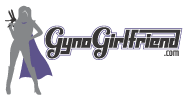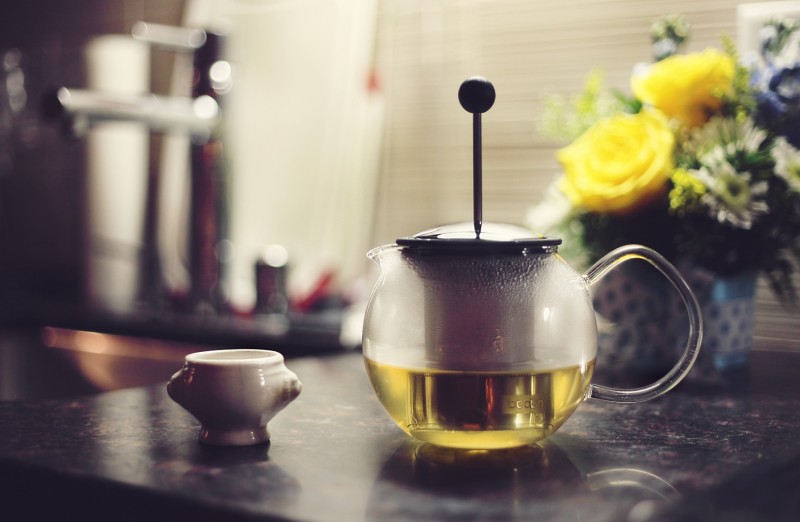Menopause. The Big Change. Life after your ovaries go AWOL can be a challenge for some. Estrogen replacement, whether it’s with tablets made from pregnant mare urine or some other equally appealing concoction, is not an option for many. From cancer risk to heart health, there are plenty of reasons not to take estrogen. The good news is that there’s a large (and growing) body of research on complementary therapies for hot flashes, encompassing everything from black cohosh to yoga. What has propelled this research is our understanding of the real risks of hormone therapy, a demand for improved quality of life (particularly among breast cancer survivors), and the simple fact that people are using complementary therapies whether their docs know anything about them or not.
The not-so-good news is that, when it comes to treating hot flashes, nothing works better than estrogen. At least that’s what the science says, over, and over, and over again. Nothing even comes close. But here’s the kicker: most studies of estrogen alternatives for hot flashes treatments show what is termed a strong “placebo response”. In other words: enroll patients in a trial, and irrespective of whether they get a sugar pill or the compound in questions, a lot of folks will show improvement. Interestingly, just-about-anything works better than nothing. Unlike therapeutics for things like, say, cancer or heart disease, there are no “objective” outcomes to measure like tumor size or heart attacks. Hot flash treatment is effective if the patient says it is.
So, is there a role for complementary therapies in the treatment of menopausal symptoms? What’s a girl to do who’s survived breast cancer or a heart attack or a blood clot when her doc yanks away the estrogen? There are a number of non-hormonal medications that can be helpful with hot flashes, including some antidepressants, but they come with their own baggage. Likewise, your doctor may recommend that you drink cold water or avoid getting overheated or wear layered clothing (to which the patient might appropriately respond, “Gee, did you learn that in medical school?”). Let’s not pretend: I know a lot of you are trying non-conventional therapies already, so let’s look at the evidence for those most-commonly used for hot flashes.
Black Cohosh (Cimicifuga racemose). One of the more commonly recommended plant-based therapies for hot flashes, black cohosh has been studied fairly extensively in comparison to other herbal preparations. How it works to control hot flashes is not clear, and really, it’s unclear if black cohosh works at all. Unfortunately, high quality studies of the herb show mixed results at best. For example, one well-designed trial comparing black cohosh, red clover, estrogen, and placebo showed only a 34% improvement in hot flashes for black cohosh. Compared to a 63% improvement in the placebo group (and a 94% improvement in the estrogen group!), this is hardly a rousing endorsement. While some limited evidence exists to say that black cohosh may improve anxiety in menopausal patients, if it really helps hot flashes, no one’s proved it yet. On the other hand, it does seem to be safe. While there are some case reports of liver toxicity in users, serious adverse events reported in controlled trials are rare.
Phytoestrogens. Isoflavones, the estrogen-like compounds found in soy and red clover, have also been studied fairly extensively for the treatment of hot flashes. Guess what: again, the results are mixed. A recent study from China looked at the use of soy isoflavones and found that the therapeutic benefit of soy increased with duration of use. Subjects reported ongoing improvement that maxed out around 48 weeks. While this may explain why studies of shorter duration found no benefit for soy, it’s hard to recommend something you have to take for close to a year to see the benefit! As with black cohosh, the evidence of benefit for the isoflavones is weak, but there’s no compelling evidence of harm either.
Acupuncture. Thought to reduce hot flashes by affecting the thermoregulatory mechanisms in the brain, acupuncture is another commonly employed complementary therapy for menopausal symptoms. It’s difficult to study: unlike research involving medications or supplements, it’s harder to devise a placebo for acupuncture for the purpose of comparison. However, there is decent evidence that acupuncture may be helpful for vasomotor symptoms, at least in the short term. Treatment effects don’t really seem to outlast duration of treatment, or not to any great extent. In other words, for ongoing relief, you’ll need ongoing treatment.
I wish I had better news about complementary therapies, but unfortunately, the science to date to support their use for hot flashes is not great, particularly for the plant-based remedies. Does this mean they have no role in the treatment of menopause? It goes without saying there’s a lot we don’t know about the mind-body connection. The treatment of menopausal hot flashes has provided fertile ground for researchers interested in understanding the placebo response. How does belief and intent affect therapeutic outcomes? The science is in its infancy, but stay tuned. As a physician, the first obligation is to Do No Harm. Your doctor may stop short of recommending herbs or plant estrogens with good justification: the science just doesn’t support their benefit. But nor should she hear alarm bells ringing when you share that you’re taking these.
Parting thought: Claims for the effectiveness of complementary therapies for hot flashes may be overblown. By the same token, women (and their providers) often overestimate the risks of hormone therapy. For some women, hot flashes are a minor nuisance, a “power surge”. For others, hot flashes disrupt their work, ruin their sleep, and zap their mojo entirely. If you are in the latter group, don’t just suffer through it: you deserve to feel better. Have a careful conversation with a provider you trust and learn about your options.
References
North American Menopause Society. Menopause Practice: A Clinician’s Guide, 5th edition.
Practice Bulletin No. 141: Management of Menopausal Symptoms. Obstetrics & Gynecology 2014 123(1):202-216.
Hall E, et al. Non-Hormonal Treatment Strategies for Vasomotor Symptoms: A Critical Review. Drugs 2011; 71 (3): 287-304.
Geller SE, Shulman LP, van Breeman RB, et al. Safety and efficacy of black cohosh and red clover for the management of vasomotor symptoms: a randomized controlled trial. Menopause 2009; 16 (6): 1156-66
Hsiao-Yean Chiu, et al. Effects of Acupuncture on Menopause-Related Symptoms in Breast Cancer Survivors: A Meta-analysis of Randomized Controlled Trials. Cancer Nursing 2015: 1-10.



Very informative. Explained my concerns in a very humane way.
Thank you. I had severe hot flashes (20 a day, waking up every few hours, unable to sleep). I tried all alternative measures over a period of 3 months (also gabapentin) before turning to estrogen and progesterone. Complete relief within 24 hours… I am really sad about taking premarin because I don’t eat meat but this was the most effective HRT for me.. Now to get rid of the pesky 15 lbs of weight I gained this summer.
When your sleep suffers, hot flashes become way more than “just” a quality of life issue. Hopefully, you can feel more comfortable taking it knowing you tried everything else, it does work! Thanks for reading!
Excellent points here. Ultimately, how hot flashes affect you is unique to the individual. It’s important to talk to a doctor about symptoms you have.